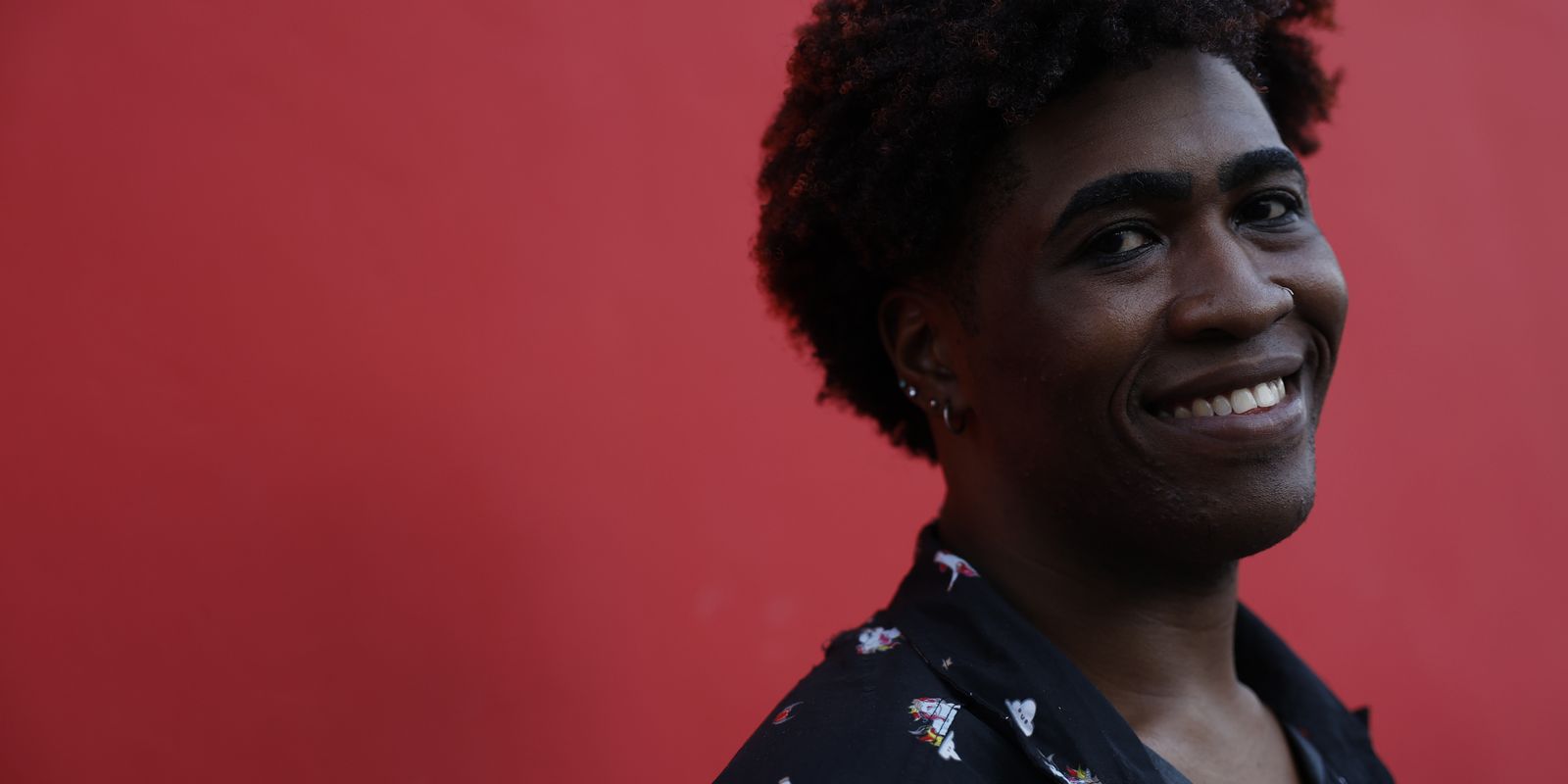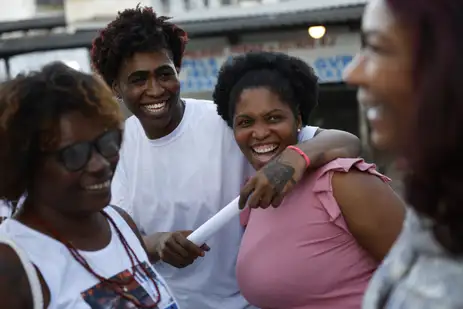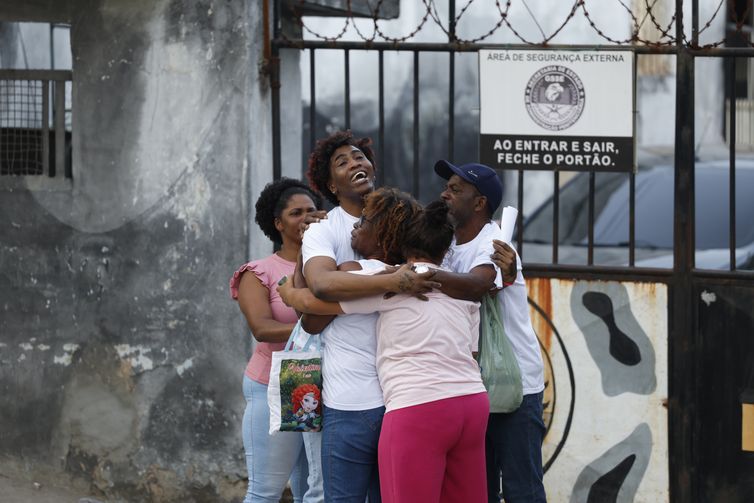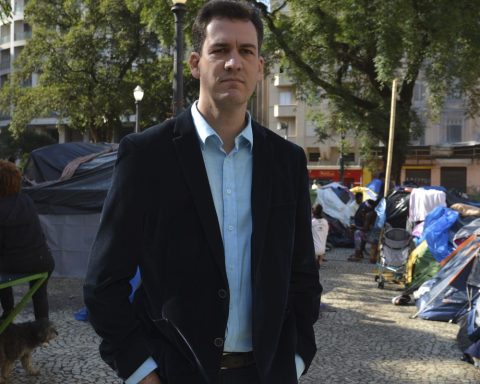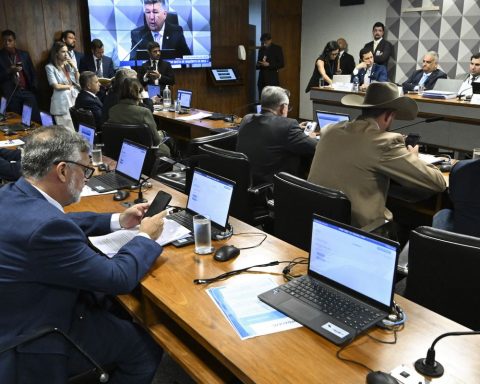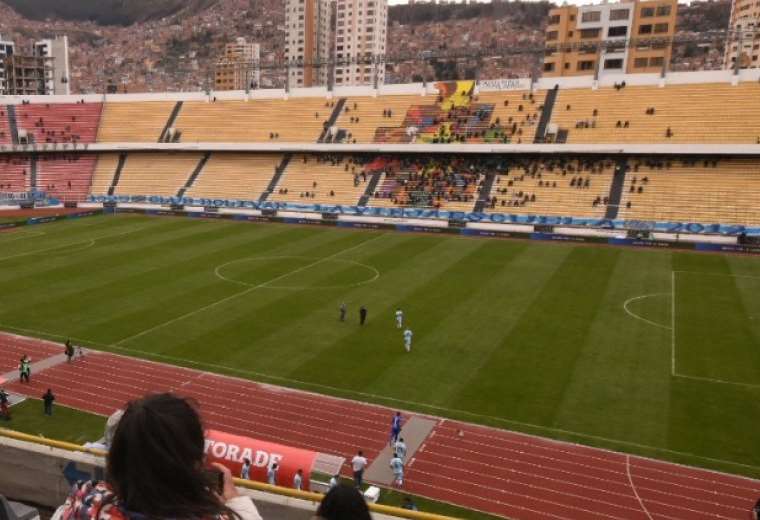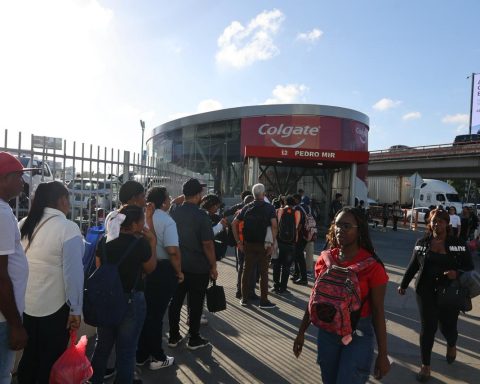Completing a technical nursing course and passing a public exam to work in the profession he came to admire after being admitted to a hospital in São Gonçalo, in the metropolitan region of Rio, to treat a cut on his hand. These are the plans of Carlos Vitor Fernandes Guimarães, 25, who was released last Thursday (25), with the feeling that he had finally regained his life, after having been imprisoned in the Evaristo de Moraes Prison, in São Cristóvão.
“It is a moment of extreme happiness for me to be able to be with my family again and to be able to return to my normal life, take my course, go back to working in my braiding field. To have my life back, to return to my reality, although I still think I am dreaming, but thankfully this nightmare is over,” said the young man, who was unjustly imprisoned, in an interview with Brazil Agency.
Unjustly arrested
Carlos Vitor’s life changed in 2018, the year he was robbed and had his documents stolen. At the time, he did not file a police report. Some time later, the young man was called to give a statement to the police, as his documents had been found in a truck used by thieves in a cargo theft in São Paulo. At the police station, the then student claimed not to have participated in the crime and insisted that the documents had been stolen previously.
It was no use. Even though he had never committed a crime, Carlos Vitor’s photo was added to the police’s suspects’ album. And that was what changed the young man’s story.
The truck driver made a photo identification at a court hearing in 2021 and named Carlos Vitor as one of the perpetrators of the robbery, despite having said that the thief had afro-style hair. João Vitor wore long braids at the time.
Despite the divergence in recognition, Carlos Vitor was sentenced, in October 2021, to six years, five months and 23 days in prison, in an initial semi-open regime.
“In person, on a video call, he had difficulty recognizing Carlos over the years, but when he saw the photo on the ID, which was in the album, he was sure it was the photo. The judge ruled that Carlos was not innocent and would have to go back to prison. In 2021, his arrest was requested again and, in 2023, he was arrested again,” recalled Viviane Vieira, Carlos Vitor’s mother.
Carlos’ case was told in program Reporting Paths from the TV Brazilshown in May of this year.
Resilience
The young man’s family did not give up and tried to overturn the arrest in the Rio de Janeiro Court of Justice, which denied the request. habeas corpus and the annulment of the sentence. In 2023, the family reached the Rio de Janeiro Public Defender’s Office (DPRJ), which filed a request for criminal review, also rejected by the TJRJ.
The public defenders then appealed to the Superior Court of Justice (STJ). Last Monday (22), judge Otávio de Almeida Toledo annulled the photographic identification made by the truck driver and all evidence against the young man, which resulted in the acquittal of Carlos Vitor and allowed him to leave prison.
“In view of the above, I grant the order to declare the nullity of the photographic recognition, as well as all evidence derived from it (art. 157 and its §1, both of the CPP), which, in the absence of independent and sufficient elements to prove the patient’s authorship, leads to his necessary acquittal”, decided the judge.
Public defender Isabel de Oliveira Schprejer, deputy coordinator of Criminal Defense, said the intense battle was necessary to repair the injustice.
“This case changed us a lot, because the injustice was very obvious to us. We tried to show this in the process and the Court of Justice did not see it the same way we did, but fortunately the STJ did. Since the review was dismissed by the court, the next instance is the STJ,” explained the defender, who worked on the case together with the Criminal Defense coordinator, Lúcia Helena de Oliveira.
“They deeply analyzed every decision [anteriores]testimonies, so it was a very well-founded decision by people who studied the process. We were very happy with the decision even though it came later than we would have liked”, he concluded.
In the understanding of coordinator Lúcia Helena de Oliveira, the inappropriate use of photographic recognition, recognized in this process by the STJ, blames innocent people, especially black people.
“This case is yet another sad example of mistakes in identifying people, which in many cases lead to innocent people being imprisoned. The identification of people must be carried out carefully and with respect for constitutional and procedural guarantees, under penalty of rights violations and unjust imprisonment, as demonstrated, on several occasions, through research by the Public Defender’s Office,” says a statement from the Public Defender’s Office.
Acquitted
For Carlos Vitor, the acquittal will open his path. “I now have options. When I was in there [da prisão]I thought my life was over because of my bad reputation, because it was hard to get a job, because I couldn’t take public exams. Everything became more difficult. Since I was acquitted, I feel like I can do what I want. I can do whatever I want,” he said.
The young man reported the difficulties of being imprisoned for a year and five months, such as the delay in being authorized to receive family visits.
“I really miss the comfort of home, the hugs, being with my family, being able to be with my little sister. I’ve been taking care of my sister since she was a baby. I also missed my routine here on the street. Everything changes. It’s all very different there,” revealed the young man, who is now back living with his mother in the Colubandê neighborhood in São Gonçalo.
“Now we have to make the most of every moment that God is providing for us. It is a great joy to know that all of this is over and that, thank God, my son was acquitted. Thank God, there are people with hearts who were touched and were able to help us, who participated from the beginning to the end,” said mother Viviane Vieira, relieved.
